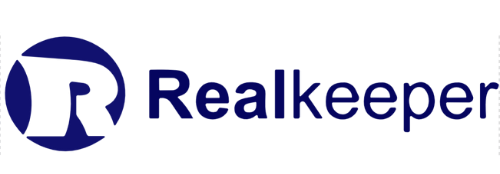
The Power of CRM Software: Transforming Business Relationships.
In today’s fast-paced business environment, building and maintaining strong customer relationships is more crucial than ever. This is where Customer Relationship Management (CRM) software comes into play. CRM software is a tool designed to help businesses manage interactions with their customers, streamline processes, and ultimately drive growth. In this blog, we will explore the various uses of CRM software and how it can benefit businesses of all sizes.
What is CRM Software?
CRM software is a digital platform that helps businesses organize, automate, and synchronize all aspects of customer interactions. It provides a centralized database where all customer information—such as contact details, communication history, and purchase behavior—is stored. This comprehensive view of customer interactions helps businesses make informed decisions, improve service, and drive sales.
- Centralized Customer Data Management
One of the primary benefits of CRM software is its ability to centralize customer data. Before CRM systems, businesses often managed customer information across multiple spreadsheets, emails, and paper records, leading to inefficiencies and data silos. CRM software consolidates all customer data into a single database, making it easily accessible to all team members.
Advantages:
-Improved Data Accuracy: By reducing duplication and standardizing data entry, CRM software helps ensure that customer information is accurate and up-to-date.
-Enhanced Accessibility: Team members can quickly access and update customer information, leading to more efficient operations and better customer service.
- Streamlined Communication
Effective communication is key to maintaining strong customer relationships. CRM software enhances communication by integrating various channels, such as email, phone, and social media, into one platform. This integration allows businesses to track all customer interactions and ensure that no communication is missed.
Advantages:
-Consistent Messaging: Automated notifications and reminders help ensure that customers receive timely and relevant information.
-Better Coordination: Team members can see the complete history of interactions with a customer, which helps avoid duplicate efforts and provides a seamless experience.
- Enhanced Customer Service
Customer service is a critical area where CRM software shines. With a comprehensive view of customer interactions and preferences, businesses can provide more personalized and efficient support.
Advantages:
-Personalized Service: CRM software allows businesses to tailor their interactions based on customer history and preferences, leading to more meaningful and effective service.
-Efficient Issue Resolution: CRM systems help track and manage customer inquiries and issues, ensuring that they are addressed promptly and effectively.
- Improved Sales Management
CRM software is a powerful tool for managing sales processes. It helps businesses track sales activities, monitor performance, and identify opportunities for improvement.
Advantages:
-Sales Pipeline Tracking: Businesses can monitor the progress of deals through various stages, from initial contact to closing, which helps manage and forecast sales more effectively.
-Lead Management: CRM software captures and nurtures leads, increasing the chances of conversion and boosting sales productivity.
- Marketing Automation
Marketing automation is another key feature of CRM software. It allows businesses to automate repetitive marketing tasks, such as sending email campaigns, managing social media posts, and tracking campaign performance.
Advantages:
-Targeted Campaigns: CRM software helps segment customers based on various criteria, allowing businesses to create more targeted and effective marketing campaigns.
-Campaign Tracking: Businesses can track the performance of marketing campaigns and analyze results to optimize future efforts.
- Data Analytics and Reporting
Data is a valuable asset for any business, and CRM software provides powerful tools for analyzing and reporting on customer data.
Advantages:
-Performance Metrics: CRM systems generate detailed reports on sales performance, customer behavior, and team activities, helping businesses make data-driven decisions.
-Trend Analysis: By analyzing customer data, businesses can identify trends and patterns that inform strategic planning and decision-making.
- Customer Retention
Retaining existing customers is often more cost-effective than acquiring new ones. CRM software helps businesses build and maintain strong customer relationships, leading to higher retention rates.
Advantages:
-Loyalty Programs: CRM systems manage and track customer loyalty programs, helping to incentivize repeat business and reward loyal customers.
-Feedback Collection: Businesses can gather and analyze customer feedback to improve products and services, leading to greater customer satisfaction.
- Task and Workflow Automation
CRM software automates routine tasks and workflows, freeing up time for more strategic activities.
Advantages:
-Efficiency: Automation of tasks such as data entry and follow-ups reduces manual effort and minimizes errors.
-Consistency: Automated workflows ensure that tasks are completed consistently and on time, improving overall operational efficiency.
- Scalability and Growth Management
As businesses grow, their needs and processes evolve. CRM software is designed to scale with business growth and adapt to changing requirements.
Advantages:
-Adaptability: CRM systems can be customized to meet specific business needs and integrated with other tools and systems.
-Resource Management: CRM software helps manage resources efficiently, supporting business expansion and growth.
- Regulatory Compliance
Compliance with data protection regulations is essential for any business. CRM software helps ensure that customer data is handled securely and in accordance with regulatory requirements.
Advantages:
-Data Security: CRM systems provide robust security features to protect customer data from unauthorized access.
-Audit Trails: Detailed logs of customer interactions and transactions support auditing and compliance efforts.
- Training and Support
Implementing CRM software comes with the need for adequate training and support. Most CRM providers offer resources and assistance to help businesses get the most out of their systems.
Advantages:
-Onboarding: Training resources and support help new users quickly get up to speed with CRM features and best practices.
-Customer Support: Technical support is available to address any issues or questions that arise during use.
- Mobile Accessibility
In an increasingly mobile world, CRM software offers the flexibility to access customer data and perform tasks from anywhere.
Advantages:
-Remote Access: Mobile access allows team members to stay connected and productive, even when working remotely or on the go.
-Field Sales: Sales teams can access real-time information and updates while in the field, enhancing their ability to serve customers effectively.
Conclusion
CRM software is more than just a tool; it’s a strategic asset that can transform how businesses manage customer relationships and drive growth. By centralizing customer data, streamlining communication, and automating tasks, CRM systems help businesses improve efficiency, enhance service, and boost sales. As businesses continue to evolve, CRM software will remain a vital component in achieving success and maintaining a competitive edge in the market. Whether you’re a small business looking to get organized or a large enterprise seeking to optimize operations, CRM software offers valuable benefits that can drive your business forward#CRM#CustomerRelationshipManagement#CRMSoftware#SalesManagement#CustomerService#LeadManagement#CustomerExperience#SalesForceAutomation#MarketingAutomation#ClientEngagement#DataManagement#CRMAnalytics#CustomerRetention#BusinessGrowth#CustomerData#CRMIntegration#CustomerInsights#PipelineManagement#CRMStrategy#SalesTracking



